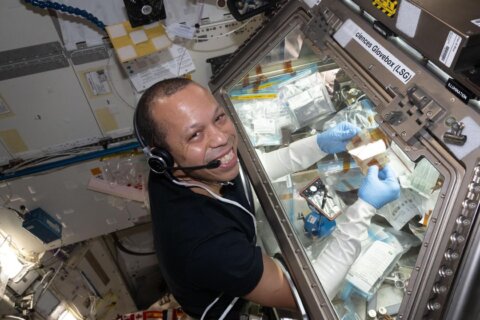WASHINGTON — The death of a Montgomery County police officer is galvanizing efforts to toughen drunk driving laws in Maryland.
Lisa Spicknall, state program director for MADD Maryland, has watched police and politicians call for interlock devices — or in-car Breathalyzers — be installed by law in cases where a driver was found to have been driving drunk.
“We’ve actually fought for that law for the past eight years,” Spicknall said. The proposal has stalled every time.
Spicknall said bills to require an interlock device for those found guilty of drunken driving have failed in Annapolis year after year when the bills go before the House Judiciary Committee.
“That committee hasn’t allowed it to come up for a vote,” Spicknall said, “and you can’t get anywhere” if a bill isn’t voted out of committee.
This year could be different, though: The death of 24-year-old Noah Leotta, a Montgomery County police officer, has put a spotlight on Maryland’s drunken-driving laws.
Leotta was working on a holiday drunken-driving task force the night of Dec. 3. He pulled over one driver when a second vehicle struck him. He died a week later.
Montgomery County Police Chief Tom Manger has said repeatedly that the driver who hit Leotta had been drinking. The case is still under investigation.
Leotta was buried this week, and his family has requested that in lieu of flowers, donations go to MADD. Spicknall said the money that’s raised goes to help families just like Leotta’s.
“We are a victim-services organization,” Spicknall said, explaining that the day-to-day needs of families after a drunk-driving incident are profoundly affected, whether the collision was fatal or not.
“In order to bury someone, in order to pay all those medical bills, all of that comes out of the victim’s pocket.”
Insurance coverage may not begin to cover the list of expenses families are hit with in the aftermath of a crash, “so by making a donation to MADD, that’s exactly what the money goes to.”
Spicknall said if she has one wish for the coming year, it’s for more support in Annapolis.
“I would really like to see the entire state of Maryland step up and support our legislation this year,” Spicknall said.
She urged residents to contact their lawmakers: “Stand with us to say ‘It means something to us and we really want to see these bills pass’.”
Go here to donate in Leotta’s memory.
WTOP’s Kate Ryan contributed to this report.







